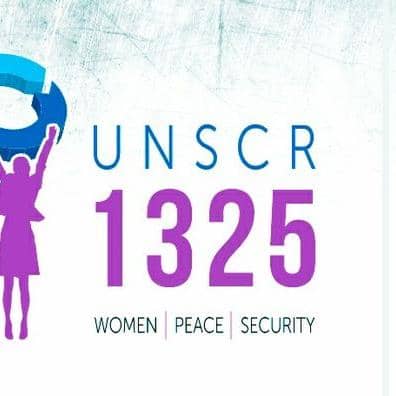The role of the media has been reemphasized in achieving the localization of the Women Peace and Security (WPS) agenda of the United Nations Security Council Resolution (UNSCR)1325 ENE OSHABA writes
UNSCR 1325
The UNSCR 1325 adopted in 2000 stresses the need for gender equality and women’s rights in peacemaking, peacekeeping, peacebuilding and conflict prevention efforts not just as direct victims of conflict, they are peacebuilders, decision makers and influencers.
It is a global instrument that urges countries to increase the participation of women and incorporate gender perspectives in all United Nations peace and security efforts.
Being the first amongst Nine (9) other Security Council Resolutions on Women, Peace and Security Agenda. It recognizes that armed conflict impacts women differently from men and demands protection of women and girls during armed conflict and post conflict situations.
It also recognizes women’s role as peace builders and agents of change, and calls on UN Member States, Civil society, and the international community to ensure women’s increased participation in conflict prevention and peace building processes, at all levels.
According to the Former United Nations Under-Secretary-General and Executive Director of UN Women Phumzile Mlambo-Ngcuka, message captured in a toolkit on the localization of UNSCR 1325 published by the Global Network of Women Peacebuilders (GNWP) with support from the UN Women, ”women remain underrepresented or absent in political decision-making and formal peace negotiations.
Mlambo-Ngcuka said women’s rights organizations, especially at the grassroots level, remain stalwart implementers of the WPS agenda, yet their works and achievements are not always adequately recognized and supported, and various challenges persist in effectively implementing resolution 1325 in practice.
”Of 1,500 agreements signed between 2000 and 2016, only 25 raised the role of women’s engagement in the implementation phase . This deficit is also reflected in the broader picture of inequality and lack of women’s participation in decision making . In 2017, only 16% of parliamentarians in conflict and post conflict countries were women – the same percentage as last year, and the year before that,” she noted.
”One way that we can work to break this cycle is by increasing engagement with women at the local level,” she added.
Localization efforts
In 2013, Nigeria localized the UNSCR 1325 through its 1st National Action Plan (NAP) on the women Peace and Security Agenda. A second NAP was launched in 2017, building on the gains of the 1st NAP, while reviewing the changed in the context and the emerging trends relating to conflict and the protection of women’s rights ; and the support for their participation in Peace negotiations, post conflict reconstruction and prevention of wartime sexual violence.
Since then, 11 states have localized the WPS agenda with a State Action Plan (SAC), while 5 local government areas have published their Local Action Plans (LAP) As the federal ministry of women affairs provides oversight for the implementation and reporting of the WPS agenda in Nigeria.
In her remarks at the media briefing/inauguration of the 3rd NAP national technical working committee in commemoration of the 22nd anniversary of the UNSCR 1325 on WPS Agenda in October this year, the Minister of Women Affairs Dame Pauline Tallen, said the 2nd NAP led to strengthening of women’s voices and structures evidenced by the frequency with which gender concerns are integrated in public policy texts and discussions.
”The vibrant activist landscape of women – focused civil society organizations has also emerged to monitor implementation. We also witnessed greater gender mainstreaming in various Government Ministries, Departments and Agencies and have also contributed to present day Reforms witnessed in the Security Sector within the country.
”One major milestone in the implementation was the domestication of the National Action Plan (NAP) by 15 States: Adamawa, Bauchi, Bayelsa, Benue, Borno, Delta, Gombe, Kaduna, Kano, Kwara, Kogi, Nasarawa, Plateau, Rivers and Yobe with corresponding Local Action Plans (LAPs’). Katsina State, which would make the 16th State, has finalized the development of its Action Plan which will be launched before the end of this year,” she stated.
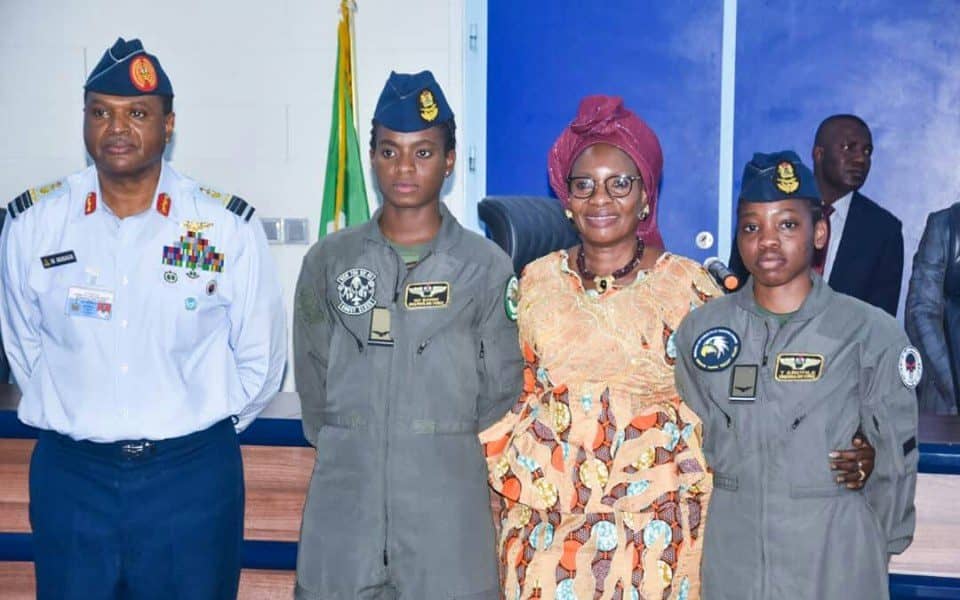
Tallen disclosed that the third National Action Plan is currently being developed to capture emerging peace and security issues from femininity, humanitarian and human rights perspectives amongst others and would be a great instrument to address various fragment of insecurity situations experienced in almost every nook and cranny of our society.
”To facilitate implementation, we have established the Annual Security Sector Forum on Women, in the Security Sector to consolidate on the current civil-military relationships crucial to the realization of the peace and security of this country chaired by the Federal Ministry of Women Affairs and co-chaired by the Defense Headquarters;
”Developed and launched a Gender Policy for the Armed Forces of Nigeria in April 2021 and that of the Nigeria Security and Civil Defense Corps in June, 2021. The Gender Policies for other Paramilitary agencies are underway.
Establishment of the Women, Peace and Security National Advisory Committee involving States as members with the intention of driving the implementation to the local levels;
”Greater inclusion of women in the traditional cabinets in most of the States where the National Action Plan on UNSCR 1325 was domesticated thereby breaking the conventional discriminatory culture against women in peacebuilding processes; as well as generated the Nigerian Women’s Ten Points Agenda on Resolving Security Issues in Nigeria,” she noted.
Media as ally
The activities of the Boko Haram insurgency and farmers/herdsmen clashes, especially in the Northeast and North Central regions, and other zones demonstrate clearly the high level of abuse against women and children who are soft targets for abduction, sexual and gender based violence, suicide bombings, among other forms of human rights violation.
It was as a result of this that the Global Network of Women Peacebuilders (GNWP), a New York-based international coalition of over 100 women’s organizations together with the West African Network of Peacebuilders (WANEP) – Nigeria and with support from the Global Affairs Canada, continue to organize trainings and workshops on the role of the media in implementing the UNSCR 1325.
At the workshops, Journalists are urged to develop a strategy that will enable the localization of the implementation of UNSCR 1325 on Women, Peace and Security, stressing that amplifying women’s Voices is a pre-condition for a full and lasting Peace.
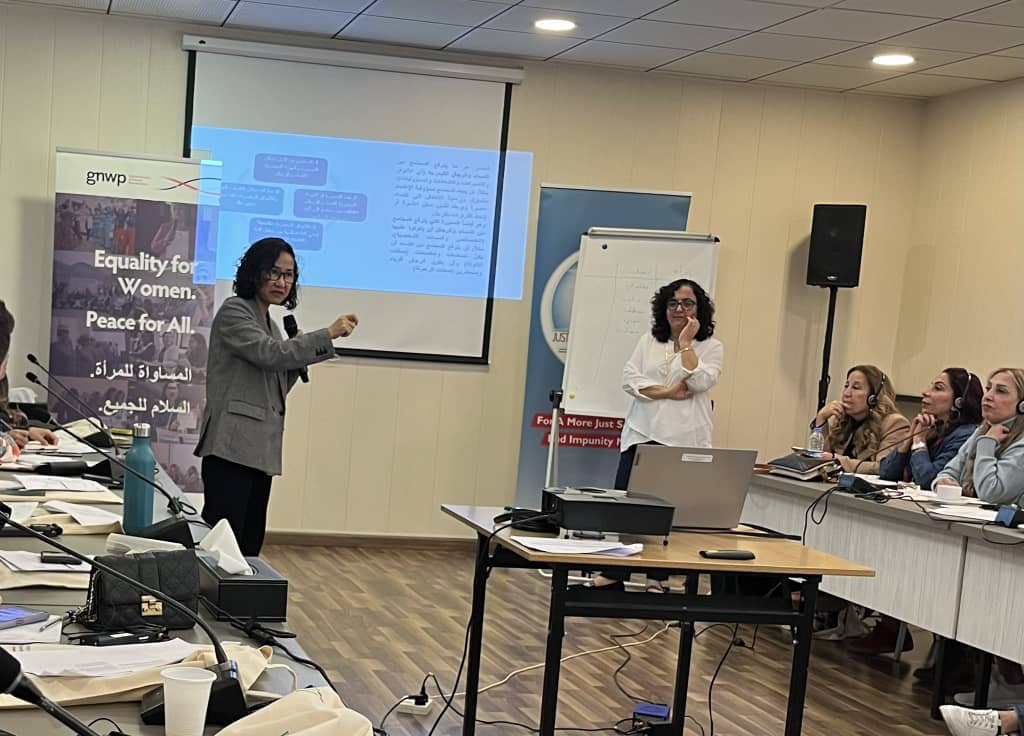
The Executive Director of the GNWP, Mavic Cabrera-Balleza, while addressing Journalists during the workshop-writeshop on the WPS agenda in Lebanon explains that localization is the ”how to” in the implementation of UNSCR 1325 in local communities, particularly those directly affected by violent conflicts in which the media has a great role.
”However, it must be noted that because of its adaptable nature, localization can and must be applied in a broad range of contexts including in communities and countries that have not directly experienced a violent conflict since World War II .
”Implementation of the WPS resolutions is everyone’s responsibility,” she stressed.
GNWP Media Peace Exchange
To further build collaborations on the dissemination of the WPS agenda, the GNWP organized a Media Peace Exchange in Lebanon. The Peace exchange aims to be a cross-sharing of experiences between the different winners of the WPS Media Award across the four countries of implementation: Colombia, DRC, Lebanon, and Nigeria.
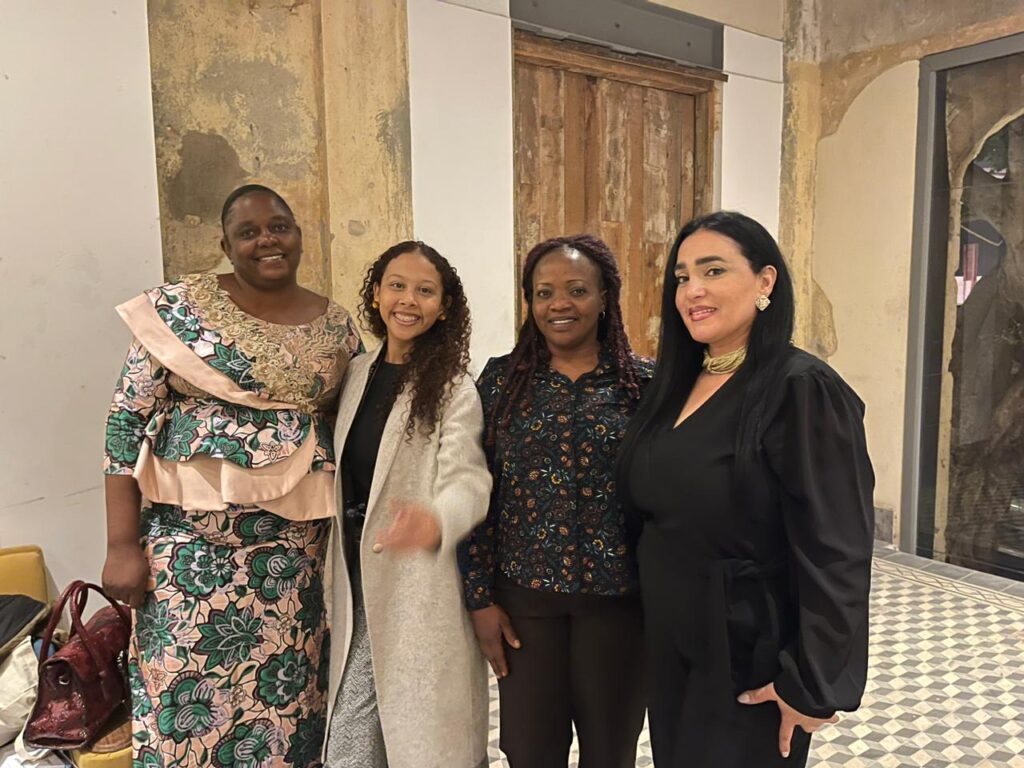
Winners participated in GNWP’s localization activities and shared experiences, lessons learned and best practices, while building solidarity to promote gender-sensitive reporting in the media, especially on how to integrate women in agriculture, education, health, economy, and most especially security deliberations.
”How media portrays men and women, how decision making in the media affects the portrayal of women and men and how media impacts democracy around the world is why a section for media and women was established in the Beijing declaration for action.
”There is lack of awareness in the media on the WPS agenda and that is why implementation has been slow and where there is lack of awareness there is lack of participation because there is no understanding on what you are supposed to support, what your role in the implementation of the policy is, and most importantly you don’t understand how it will affect your life.
”Information is power and without information there is no participation and without participation there is no power and this is why we are collaborating with the media because the media is the most important partner in raising awareness, encouraging ownership and participation in the implementation of laws and policies.
Cabrera-Balleza noted that the WPS agenda aims to attain sustainable peace for everyone, explaining that no country ever developed without sustainable peace.
“Even countries that used to be prosperous if they are not able to guarantee inclusive and sustainable peace they will slide down to economic hardships, weakening of social institutions,” she maintained.
She further said that no country ever progresses without full Gender Equality; this is how critical this is and the media has a role in informing and creating awareness on the agenda.
“The media profession is in danger and because of that many societies is in danger but we can make a difference because you are the most important social institutions and has the power to encourage change,” she stressed.
She expressed worry that most people around the world have become disinterested with the government, adding that there is so much hatred towards the government.
”We don’t want that, we want all governments to succeed in ways that will serve the needs and interests of the majority of the people, not just a few.
”This is why GNWP works with the governments and makes it a condition that the government work with the media and civil society organizations because the government is there to serve the people and they cannot do that effectively if they don’t work with the media to make people aware of what they are doing.
”We cannot expect effective implementation if the media don’t raise awareness of the WPS resolution, the nations Action Plans, by amplifying the objectives, weaknesses and gaps if there are any. Creating awareness encourages other people to think critically so they are not just laws on paper but should lead to positive change in the lives of people,” she said.
”The media has an important role in the WPS agenda and while we are focusing on WPS we are not isolating it from other concerns in society like the economy, environment, climate change, education, health, employment situation are interconnected, we cannot think of one issue in isolation, ” she added.
Blueprint reporter represents Nigeria
Ene Oshaba, the Women correspondent and producer of the special weekly column titled ”Women” participated and won the Media and Women, Peace and Security Prize Competition organized by WANEP- Nigeria in Partnership with GNWP.
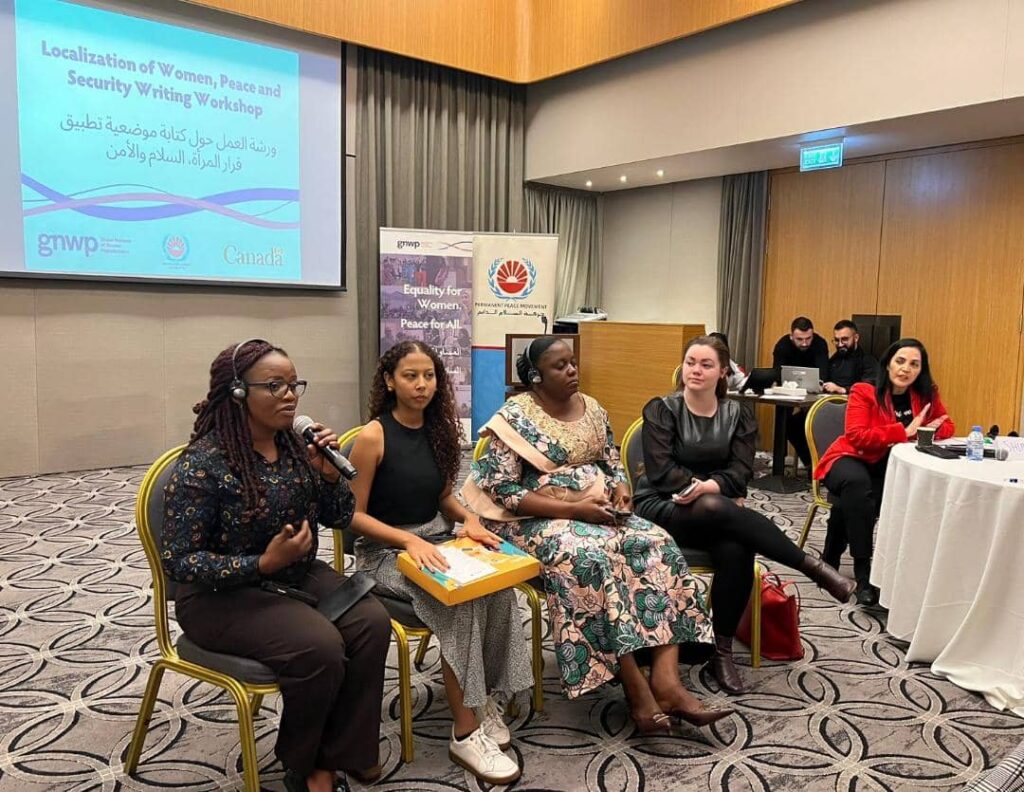
Her report highlighted the need for women inclusion in decision making and peacebuilding processes and was invited to travel to one of the other implementing countries to cover women, peace and security issues alongside winners from the Democratic Republic of Congo (DRC), Columbia and Lebanon.
Sharing her experience, Oshaba noted that women issues were generally underreported in the media except for stories that portray their weaknesses when there are many winning stories of women.
Oshaba discussed her winning story which focused on the strength of Internally Displaced Persons (IDP’S) particular the women in Nigeria, noting how the hitherto house wives became breadwinners after their husbands were either killed or captured by the Boko Haram terrorists.
She further highlighted how to do good reports of women affected by violent conflicts who are afraid to share their stories , stressing the need for Journalists to be strategic and well informed on issues and policies of the government to aid their reportage.
”When displaced women residing in camps refuse to speak to a journalist it is not because they do not want to, but because they are scared of exposing the ills against them for fear of being evicted from the shelter since they have no alternatives. We can tell their stories through the Civil Society Organizations that bring them interventions because they know their conditions better.
”For instance if a health based CSO visited the camps, a journalist can get information from them on the prevailing ailments and then do a report on what they are suffering , or if a right based organization was at the camp, the omen could share their experiences during interactions and the Journalist will get information on the violence or discrimination happening in the camps,” she said.
”You can also do your reports by questioning the implementation of laws on the lives of the citizens, especially grassroots women . So, I do human-interest stories which discuss the people in an emotional way. It presents people and their problems, concerns, or achievements in a way that brings about interest, sympathy or motivation in the reader or viewer,” she added.
The four winning Journalists committed to creating awareness through their reports on the WPS agenda in order to enable full localization at the community levels in their various countries.
WANEP stresses Media role
The National Network Coordinator of WANEP-Nigeria Bridget Osakwe, in a phone interview with this Journalist stressed the importance of the media in ensuring the full domestication of the resolution in Nigeria.
According to Osakwe, Media is a key partner in promoting broad public awareness and the effective implementation of the UNSCR 1325.
“We want every Journalist to ask themselves a question: what can I do to promote this agenda, and make sure the representation of women in the Nigerian media is changed?
“When media reporters adopt a gender lens, they become key actors in promoting broad public awareness of WPS, support and recognise the role women play in preventing conflict, building and sustaining peace,” she said.

